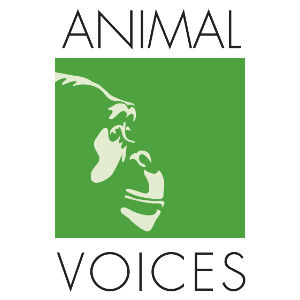
Animal Voices
Unknown
Your animal advocacy and vegan lifestyle show
- Listening, Deconstructing and Reconstructing: Celebrating black vegans and centering their stories
Too often we see the mainstream framing of black veganism or indigenous veganism as an assimilation into white veganism. Veganism is painted as a white person thing, when it isn’t and never has been. That is why creating spaces for the narratives of black vegans to grow and flourish is extremely important. I hope with this interview, our listeners reflect on their role in dismantling racism in animal rights by centering and celebrating POC who are in the movement.

One celebratory digital media space where this is taking place is Black Vegans Rock. Created by the creative Aph Ko who is an activist engaging in several independent digital media projects. Aph also launched a new blog site called Aphro-ism with her sister Syl where they provide critical analysis from a black feminist vegan perspective. After she wrote the first list that spotlighted 100 Black Vegans who were doing incredible work to dismantle the stereotype that veganism was a “white person’s” thing, Black Vegans Rock was created as a digital space that seeks to spotlight everyday Black vegans who are looking to get their work, art, music, restaurant, book or other projects in front of other vegans.We talk to Aph about why she decided to create such a celebratory project and why centering black vegans is an important process in dismantling white supremacist discourses pervading the animal rights
movement. By sharing one story at a time, we see the complex lives of people around the world who are creating new frameworks for thinking about veganism.With capitalism co-opting ideas so quickly (the idea of intersectionality for example) and depoliticizing our movements, finding different frameworks for looking at anti-oppression work is crucial. Can we find ways to genuinely dismantle the racism, sexism, transphobia, homophobia, ableism and speciesism? Understanding the erasure of black and and brown bodies in veganism is one way to do that work.
Aph also is constantly creating and building for tomorrow. She is known for making fictional comedy web-series that tackle social justice issues.Tales from the Kraka Tower satirizes diversity in academia [and features a vegan black character], and Black Feminist Blogger highlights the massive amount of invisible labor in blogging.
Check out Black Vegans Rock
Listen right now: https://animalvoices.ca/wp-content/uploads/2016/03/aphko-archiveready.mp310 March 2016, 10:31 pm - Sustaining a grassroot movement to end animal research: Updates from No New Animal Lab & NYC Animal Defense League
 In February 2015 we interviewed No New Animal Lab about their campaign to stop the expansion of the University of Washington’s research lab while pressuring the private construction firm, SKANSKA into terminating their contract with the university.
In February 2015 we interviewed No New Animal Lab about their campaign to stop the expansion of the University of Washington’s research lab while pressuring the private construction firm, SKANSKA into terminating their contract with the university.U of W has been a long time animal research facility, using thousands of animals as research tools. Activists, students and federal authorities have all been concerned with these practices, especially when in 2014, the USDA, which enforces the law governing the proper treatment of animals in laboratories, cited Washington, the Oregon Health & Science University, and the University of California-Davis for failing to care properly for the animals. In April of 2014, the USDA found that the majority of monkeys at Oregon were suffering abnormal hair loss, potentially caused by psychological factors. In a November 2014 report, the USDA reprimanded Washington officials for the deaths of three infant monkeys, who were attacked by older male primates. Stop Animal Exploitation NOW! says an additional four monkeys have died since 2012, according to documents they obtained through a public record request.
We talk with No New Animal Lab and NYC Animal Defense League about the ongoing campaign pressuring the university and Skanska, as well as other subsidiaries that will profit off this new lab being built. What has the last year looked like for activists fighting this? Over the last year there has been work to push back against injunctions (SLAPP – Strategic Lawsuits Against Public Participation – which are often used by corporations against protest movements in an The facilities at U of W currently have room for 650 primates, but the new building will allow for 280 more and hundreds of other species.
The facilities at U of W currently have room for 650 primates, but the new building will allow for 280 more and hundreds of other species. attempt to chill dissent and disrupt campaign organizing) filed on behalf of two executives of Skanska USA.
attempt to chill dissent and disrupt campaign organizing) filed on behalf of two executives of Skanska USA.
There has also been many home demonstrations, making the statement that decision makers profiting off animal exploitation will be held accountable to the public.While we discuss the specifics of this campaign, we also acknowledge that this campaign is a sign that grassroots animal liberation is becoming less fragmented and growing stronger, even in the face of growing activist repression and lack of funding.Please consider supporting No No Animal Lab and NYC Animal Defense League. By doing so you are helping with legal costs and supporting grassroots animal advocacy.
Listen right now: https://animalvoices.ca/wp-content/uploads/2016/02/nonewanimallabarchiveready.mp312 February 2016, 12:57 am - intertwined roots and routes: immigration, healing, and connections with birds
 Our current age called the Anthropocene – climate change, super-diverse societies, and other expressions that are occurring at such magnitude – “change” permeates our contemporary societies, public opinion and our scientific and political imagination. For thousands of years most species, including homosapiens have been migrating. Nowadays, it happens so much faster and it’s causes are often a result of climate change, war, and a cumulation of political decisions that seem like a domino effect.
Our current age called the Anthropocene – climate change, super-diverse societies, and other expressions that are occurring at such magnitude – “change” permeates our contemporary societies, public opinion and our scientific and political imagination. For thousands of years most species, including homosapiens have been migrating. Nowadays, it happens so much faster and it’s causes are often a result of climate change, war, and a cumulation of political decisions that seem like a domino effect.
In current public discourse these cumulative effects are not taken into account and the plight of immigrants, migrant workers and refugees are misunderstood and scapegoated as a burden to receiving countries.
As much as the concepts of immigrants are socially constructed and there is a false dichotomy between citizen/non-citizen, it is important to look at how human mobility has shaped identity and our environments.
Cristóbal Pizarro does this work finding the connections between human mobility, place and biodiversity, and how birds can help immigrants adapt to change.

screen print called “Birds Over the Cityscape” by Erik Ruin & Jesse Purcell justseeds.org
In our interview with Cristóbal we discuss how he began seeing the connections in his own life. Through understanding the different historical processes of colonization as a Latin American – the formation of nation states and national identity, and the erasure of Indigenous culture – he felt disconnected from his bicultural memory. By actively remembering meant finding meaningful connections. The key to healing for Cristóbal was learning more about himself and birds.
His work is therefore grounded in emancipatory tools that subvert the colonial and scientific objective paradigms of academia. Often this means that biodiversity and immigration isn’t really researched together and there are huge conceptual gaps that need to be bridged.

Etching called “Pájaro en Mano” by Fernando Martí justseeds.org
Considering this, we talk about the damaging rhetoric that paints animals/plants/humans as “invasive”, such as immigrants and urban dwellers and how building radical narratives means highlighting the beauty in movement and sociality between species. For example, how humans have coevolved alongside Crows and that pigeons have become ties to home for Italian and Turkish immigrants in New York and Berlin, at the same time that they are a means of socialization with new immigrants in their neighbourhoods.
The lives of birds are often overlooked, and even our relationships with animals can be complicated. Take the high-tech domesticated fowl we consume who originated from Asia and claim that eating their bodies are “natural” to us. There is also undesired guests or invasive species (e.g., European starling and Monk Parakeet), or ignored cosmopolitan urban dwellers that occur in everyday life in cities around the world like Pigeons and Gulls.
Cristóbal says that since we are living in the Anthropocene, this means that we need to achieve a forceful understanding of our connectedness and interdependency with nature. “Such an understanding does not grant humans political laissez-faire towards the nonhuman world; instead, it emphasizes our shared responsibility to care for others and for ourselves”. Ultimately this leads to a framework of action.

photo of Cristóbal Pizarro co-producing nature
[Cristóbal Pizarro is a Chilean PhD Candidate in Social and Environmental sustainability at the University of Waterloo. He has a broad interdisciplinary training in veterinarian sciences, ecology, conservation and environmental philosophy. He is also passionate about birds, in their full biological extent and social expressions, including bird interactions with humans in culture and everyday life. In his research in Canada, Cristóbal study immigrants-bird relationships as proxies of social dimensions of the Anthropocene, including the link between human mobility, biodiversity and place]
Listen right now https://animalvoices.ca/wp-content/uploads/2015/12/cristobal-archive-ready.mp3
or download an mp3 of the show.
25 December 2015, 4:41 am - Living a life of non-judgement: unlearning the legacy of poor bashing in Canada with Bif Naked
Bif Naked, Canadian singer-songwriter, writer and motivational speaker has been quite active in speaking out against poverty.
Partnering with Vancouver Raise the Rates, she recently participated in The Welfare Food Challenge,
 which aims to demonstrate the reality of living on $610 of social assistance a month.
which aims to demonstrate the reality of living on $610 of social assistance a month.She wanted to get involved to raise awareness about the plight of our poor, to promote understanding, and to educate the public to dispel the myths about welfare and welfare recipients. The idea is to encourage change and to try to get the attention of those with power to make those changes: your provincial government.
Having been on welfare earlier in her life, the reality is that in today’s society, folks on welfare right now in B.C cannot afford shelter. Doing the math, it is impossible to live a healthy life after shelter, transportation, personal hygiene, clothing, household supplies, and bills are paid for. The math doesn’t add up when there is $21 per week left for food. Talk about food insecurity.
Bif learned that being outspoken in the public about poverty meant seeing what our society believes about poor people.
“I was shocked. In fact, the more questions I asked, the more I discovered that people generally are classist and racist. People can’t relate to it because they haven’t experienced it. Our country has a lot of prejudice and hate towards the poor.”
A recent article laid out the facts that income inequality is killing thousands of Canadians each year. This is class war. There is no denying that anti-poor sentiments are misinforming how neoliberal politicians allocate money to provincial housing and food initiatives.
The report that the Toronto Star article cites came to the conclusion that if all Canadians were as healthy as the top 20 per cent of income earners, there would be approximately 40,000 fewer deaths each year. The report also calculates the relative rate of mortality, comparing the likelihood of death between someone in the poorest 20 per cent of Canadians and one of the wealthiest 20 per cent of Canadians. Overall, this figure is 1.67 for men and 1.52 for women, indicating that a poor male has a 67 per cent greater chance of dying each year and a poor woman has a 52 per cent greater chance than their wealthy counterparts.

On the show we talk with Bif about food insecurity and veganism, and how being a raw vegan for over 20 years was great for her at the time, but has since become more flexible and pragmatic. Especially since kicking cancer’s ass and being a touring musician most of her life, she talks about how eating all raw and organic isn’t financially sustainable. We talk more about how veganism can be affordable and not just for white middle class folks.We also chat about how practicing martial arts, supporting survivors of domestic abuse, straight edge, and veganism are all connected for her.
Anti-poverty groups in Canada to check out:
Ontario Coalition Against Poverty
Raise the Rates Ontario
Rates the Rates British Columbia
Canada Without Poverty
Listen right now https://animalvoices.ca/wp-content/uploads/2015/12/bifnakedarchiveready.mp3or download an mp3 of the show.
8 December 2015, 11:29 pm - Radicalizing ourselves with art: Jared Paul on life as a spoken word/hiphop artist, growing up working class and advice for folks navigating DIY creative communities.
It’s scary to put yourself out there, and the world isn’t that welcoming to bright eyed anti-capitalist creatives, but there are safe spaces you can find yourself in with the help of good folks. It’s a huge privilege to be able to travel without restrictions and have your voice heard as an artist. It’s important that those with a mic realize that they are in a position of power to add to the conversation of liberation.

For myself, as a travelling musician, it takes a little bit of social capital, some $, white skin, cis passing privilege. I want so badly for art and music to be accessible to the poor, working class, poc, queers, trans and disabled folks, not just to be participants, but to be directly involved in. I also a huge privilege to have freedom of movement and I constantly think of the stories of refugees, migrants, immigrants (whatever you want to call folks moving for different reasons), prisoners who have limited choices in dictating their own lives.
As artists, musicians, we have a mic and folks listening to what we say. Let’s use that power to talk about these things and to create safe(r) spaces for marginalized folks to also share their stories.
Jared Paul has been reflecting on this for some time with sharing his stories on stage as a spoken word poet and hiphop artist. We talk about becoming radicalized through art, growing up working class and advice for folks navigating DIY creative communities. We also mention how DIY (do it yourself) ethics doesn’t mean going it alone, like neoliberal individualism teaches us, but it’s more about doing it together with the help from people who care.

We also talk to Jared about his personal projects like Class War Chef and how veganism and classism are connected. People often dismiss veganism, sometimes rightfully so, as bourgeois. We feel the need to have a sharp analysis of vegan consumerism, because the nature of capitalism always co-opts popular attitudes/behaviours, but sanitizes the political possibilities. That requires folks supporting each other in educating and challenging our communities in food politics, white supremacy, and classism.
check out Jared’s hiphop album that was just released on Black Box Tapes called Get My Ghost.
Listen right now [audio https://animalvoices.ca/wp-content/uploads/2015/11/jaredpaularchiveready.mp3]
or download an mp3 of the show.
18 November 2015, 5:16 pm - cross-cultural conflict: Dr. Claire Jean Kim on the Yulin Dog Festival, western ethics, and racial tension
The internet exploded earlier this year with outrage from Western vegans, animal lovers, and dog owners in response to the Lychee and Dog Meat Festival held in Yulin, China. Graphic images inflamed
 sensibilities and a conflict began to mount that was clearly producing racial tension between the (typically) white animal rights protestors and the people of China who practice a cultural tradition of eating dog meat. Defensive over claims of cruelty on one side and racism on the other, each group backed into their respective corners. This pattern of cross-cultural conflict is seen regularly within the animal rights movement and the charges of racism and imperialism are often well-founded.
sensibilities and a conflict began to mount that was clearly producing racial tension between the (typically) white animal rights protestors and the people of China who practice a cultural tradition of eating dog meat. Defensive over claims of cruelty on one side and racism on the other, each group backed into their respective corners. This pattern of cross-cultural conflict is seen regularly within the animal rights movement and the charges of racism and imperialism are often well-founded.On this show we talk to Dr. Claire Jean Kim about these cross-cultural conflicts. Dr. Kim is a Professor of Political Science and Asian Studies at University of California, where she teaches classes on comparative race studies, social movements, and human-animal studies. Her book, Dangerous Crossings: Race, Species, and Nature in a Multicultural Age, examines the intersection of race, species, and nature in impassioned disputes over how immigrants of color, racialized minorities, and Native people in the U.S. use animals in their cultural traditions. The main focus of the book explores a campaign to ban live animal markets in San Fransisco and examines the racial tension that resulted between the mainly white protestors and the merchants of Chinatown. The second and third case studies cover the controversy surrounding a decision by the indigenous Makah nation to resume whaling and the outrage over the arrest and conviction of Micheal Vick on charges of dog fighting.
This interview covers the concepts from Dr. Kim’s book, as well, we will apply the theories and lessons learned from Dr. Kim’s book to the recent example of the Yulin Festival and talk about ways in which issues of animal suffering can be addressed cross-culturally without reproducing oppressive racial and imperial patterns.
Listen right now [audio https://animalvoices.ca/wp-content/uploads/2015/11/wholekiminterview.mp3]
6 October 2015, 4:04 pm - Getting to know chickens: Myths of humane meat, domestication, and developing respect for farm animals
 On this show we talk to Hope Bohanec, who has been active in animal protection and environmental activism for over 20 years and is a nationally recognized leader and speaker in the animal protection movement. She is currently serving as Projects Manager for United Poultry Concerns as well as the Executive Director of Compassionate Living, a Sonoma County, California based vegan outreach organization.
On this show we talk to Hope Bohanec, who has been active in animal protection and environmental activism for over 20 years and is a nationally recognized leader and speaker in the animal protection movement. She is currently serving as Projects Manager for United Poultry Concerns as well as the Executive Director of Compassionate Living, a Sonoma County, California based vegan outreach organization.Hope has been fighting against industrial and local “humane” industries, where she has researched and written in The Ultimate Betrayal: Is There Happy Meat?.
We talk about being an educator in the animal protection movement, the history of domesticated animals, including fowl, and the “humane” myths pervading popular discourse.
It is important to understand construction of certain animals as food and longstanding cultural beliefs. Chickens have been a part of human culture for thousands of years, through language, literature, and entertainment. The species has been predominately constructed as a “normal” food source in the West, even though chickens were not native to North America. It’s amazing how overlooked such a species is because in our modern times we see the chicken as a commodity with one purpose – food.
We stand with those working to dismantle these long standing embedded ways of viewing farm animals.

Painting by Mary Britton Clouse “Ginna’s Quest” oil on canvas board 17″ x 12″
Learn more about Hope’s writing in The Ultimate Betrayal: Is There Happy Meat?
Check out the chicken advocacy work United Poultry Concerns are doing.
Learn more about chickens from the The National Museum of Animals & Society’s exhibit called “Uncooped – Deconstructing the Domesticated Chicken”
Listen right now https://animalvoices.ca/wp-content/uploads/2015/11/hopearchiveready.mp3
1 September 2015, 3:42 pm - Which side are you on? Producing radical DIY media in times of activist repression
In this episode, you’ll hear us talk with Jeremy and Jordan, both long time vegan anarchists who are behind Which Side, a podcast by activists, for activists, that gives a platform for folks who are passionate about fighting animal, human and environmental oppression.

We talk about producing DIY media projects, what it was like growing up in Utah with mormonism and straight edge being strong influences, having privilege in media and giving space for marginalized voices to share their stories, and the importance of prison support for political prisoners.
We aired right after Prison Justice Day, and included an older interview with Toronto Anarchist Black Cross. We wanted to share why it is so important to support people who are in prison. If our movements are challenging the state, people who are active face repression. All prisoners are political prisoners. There are many ways to support to let prisoners know they aren’t alone and forgotten. You can financially support, listen and support prison radio and publications, write letters, send books, and more.
https://torontoabc.wordpress.com/
http://www.prisonradio.org/
http://www.abcf.net/
http://www.blackandpink.org/
https://1in100.wordpress.com/prisoner-publications/
http://prisonbookprogram.org/Listen right now: https://animalvoices.ca/wp-content/uploads/2015/10/whichside-archive-ready.mp3
11 August 2015, 3:00 pm - The Social Power of Cinema
This week we host a discussion with Cornell University sociology PhD student, Loredana Loy, on how representations of nonhuman animals and advocacy issues in cinema provide opportunities for social change and create an auspicious momentum for advocacy on behalf of nonhuman animals. Loredana;s blog series “Cinema for Social Change” provides a glimpse into her research on the subject. While many movies fail to produce thoughtful and moving animal characters and stories, the ones that get it right can have an enormous impact and outreach. Modern forces of industrialization and urbanization have hidden nonhuman animals and consequently their exploitation from our everyday experiences, but cinema has the power to reintegrate them into our lives. So what makes a good film? How did activists build momentum around movies that include positive animal advocacy themes? How can we become more effective? Listen in this week for answers to these questions and analysis of films that really got it right.
At the end of the segment, you will get to hear a poem by Jared Paul. Jared is a totally rad, vegan, social and environmental justice activist and artist, and slam poetry champion from Providence, Rhode Island.
Loredana’s other movie-themed blogs: Review of The Plague Dogs: http://reelchange.net/…/the-plague-dogs-revival-of-a-maste…/
Review of Rise of the Planet of the Apes: http://www.ourhenhouse.org/…/film-analysis-rise-of-the-pla…/
Review of The Turin Horse and Au Hasard Blathazar: http://www.ourhenhouse.org/…/film-analysis-the-turin-horse…/
Listen right now: https://animalvoices.ca/wp-content/uploads/2015/10/loredana-interview-archive-ready.mp3
4 August 2015, 3:00 pm - Towards a world without domination and the end of meat
 Have you ever imagined what our world would look like in a post-meat society?
Have you ever imagined what our world would look like in a post-meat society?This episode we chat with Marc Pierschel and Jeff Wirth who are filmmakers working on the documentary, The End of Meat. This film project is seeking to explore what our world would look like in a post-meat world, where animals are no longer exploited for human use. What will our world look like when relationships with non-human animals are based on compassion and understanding instead of domination.
We talk about what people can expect from this film, how technology fits into animal industries becoming obsolete, as well imagine what our relationships with non-human animals would look like once they are seen as persons and protected under the law. Instead of being consumers who are cognitively dissonant from our choices, we can begin rebuilding how we see and treat animals.
Check out their website, where you can contribute to this project financially and with skills you may be able to lend the filmmakers, or send them your idea of what a vegan world would look like..how will we live together with animals? What are we going to eat? What kinds of problems might we be able to solve?
Listen right now: https://animalvoices.ca/wp-content/uploads/2015/07/endofmeat-archive-ready.mp3
14 July 2015, 3:00 pm - Daring to care about ourselves and others: Anastasia Yarbrough on the foundations of liberation work
Anastasia Yarbrough, writer, naturalist, and activist, shares her reflections doing grounded grassroots community work that is inclusive to human and non-human animals.
We talk about her experiences living in a small rural community as an activist, interspecies relationships, the powerful connections between
 afro-animal struggles, and the importance of radical self-care.
afro-animal struggles, and the importance of radical self-care.Anastasia works as individual, following her heart and moving through different realms like non-profits, grassroots community work, municipalities, housing authority, artistic spaces to do liberation work.
We cover many topics that revolve around challenging oppressive paradigms and negotiating how to do that while being grounded with ourselves and the other humans and animals we share spaces with.Listen right now: https://animalvoices.ca/wp-content/uploads/2015/10/anastasia-archive-ready.mp3
or download an mp3 of the show.
16 June 2015, 3:00 pm - More Episodes? Get the App
Your feedback is valuable to us. Should you encounter any bugs, glitches, lack of functionality or other problems, please email us on [email protected] or join Moon.FM Telegram Group where you can talk directly to the dev team who are happy to answer any queries.

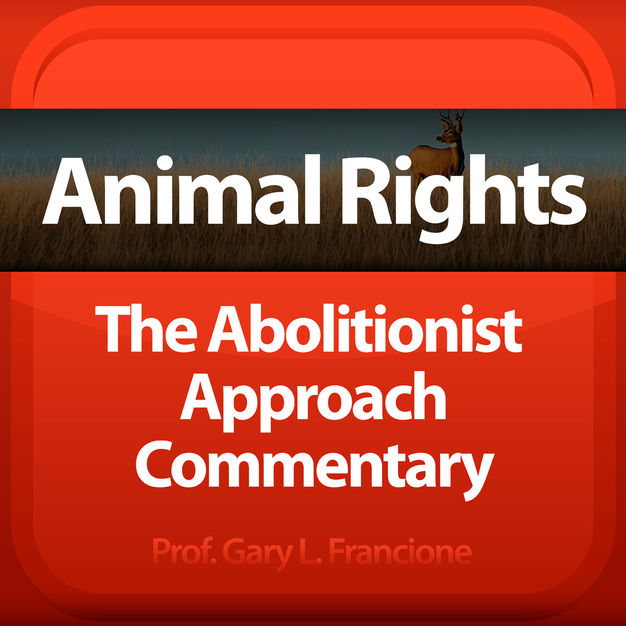 Animal Rights: The Abolitionist Approach Commentary
Animal Rights: The Abolitionist Approach Commentary
 Animal Voices
Animal Voices
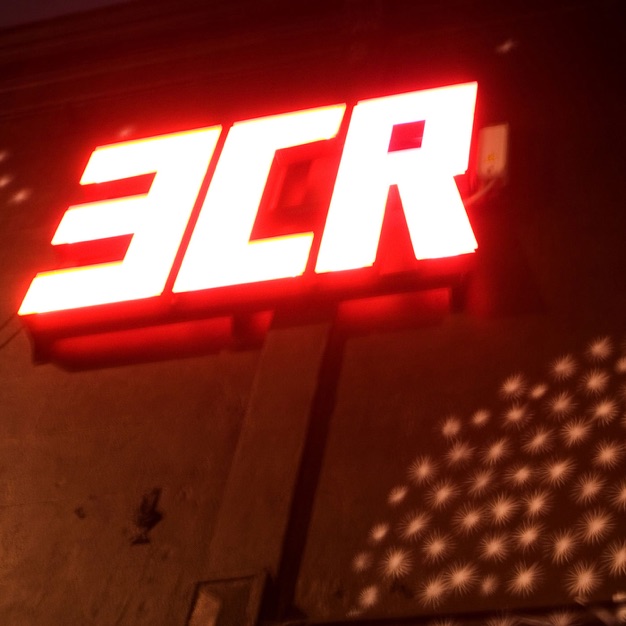 Freedom of Species
Freedom of Species
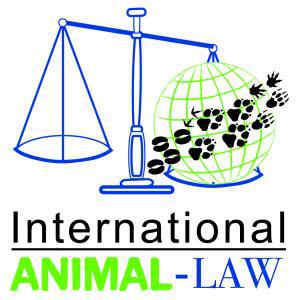 Animal Welfare
Animal Welfare
 ARZone (Animal Rights Zone) Podcasts
ARZone (Animal Rights Zone) Podcasts
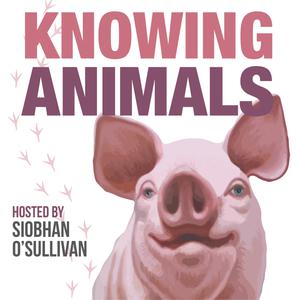 Knowing Animals
Knowing Animals